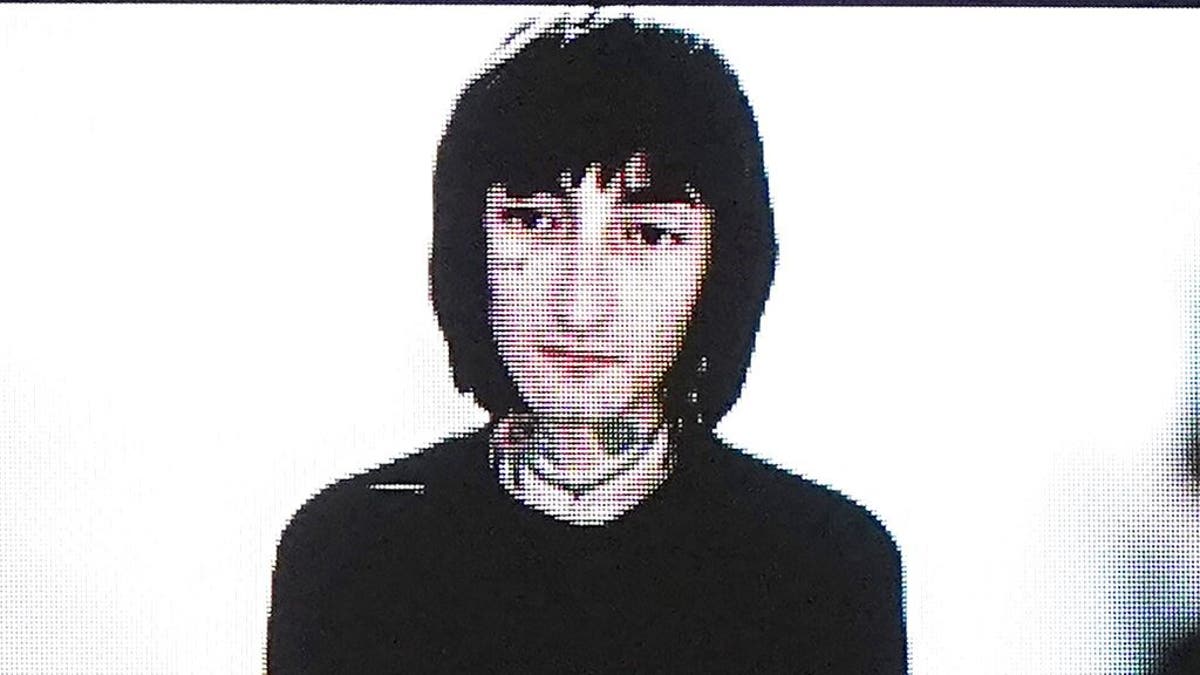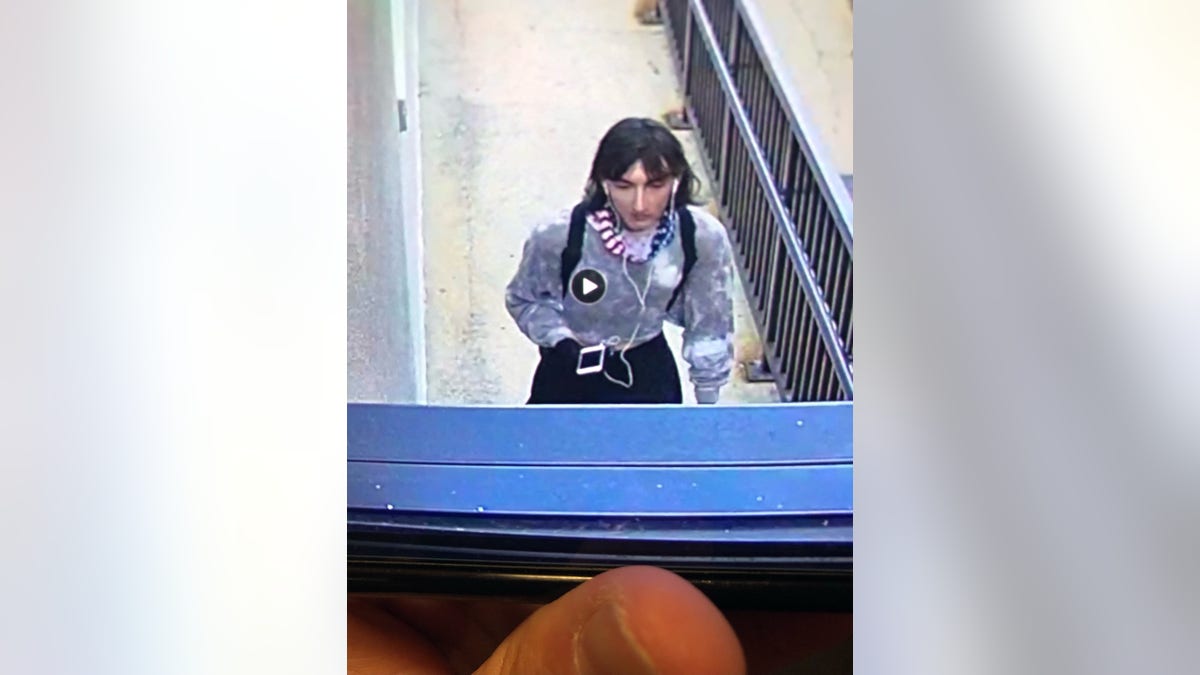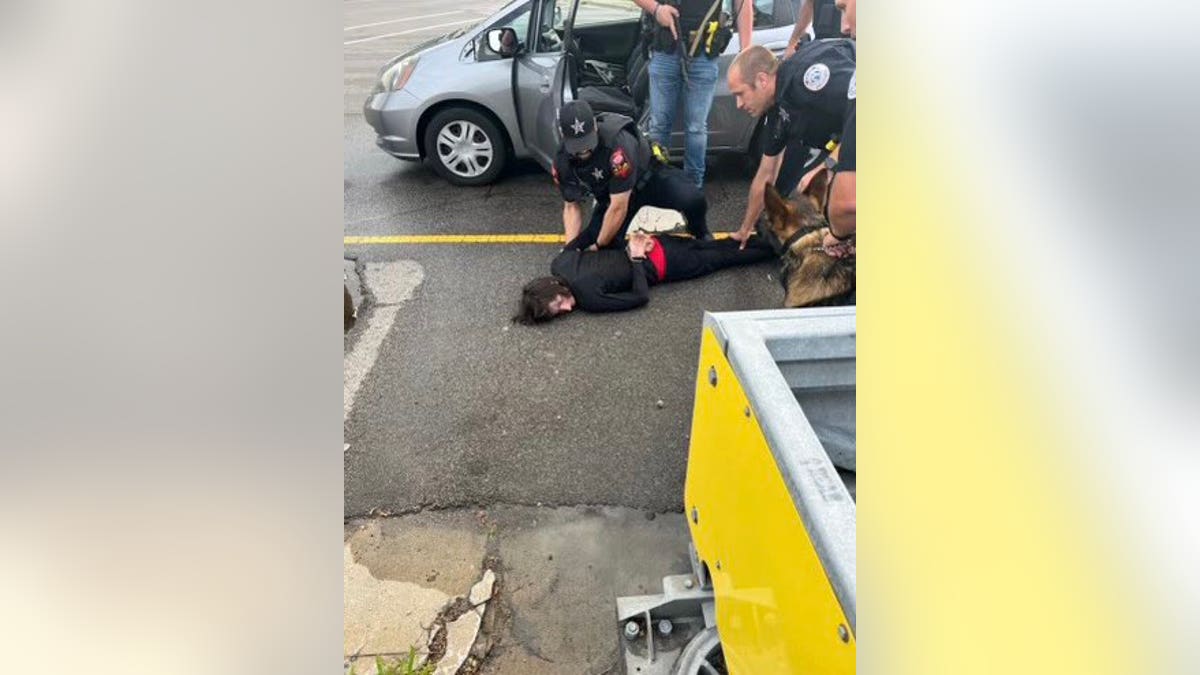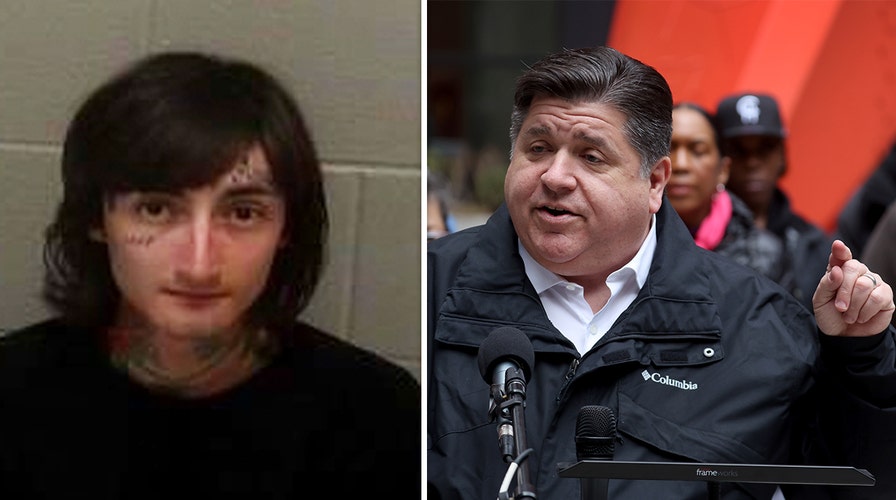Illinois Gov. J.B. Pritzker directed state police to implement an emergency rule change Monday that can block residents from obtaining firearms under certain circumstances.
The move would prevent people like Robert Crimo III, the alleged Highland Park shooter who had made documented threats of violence against himself and others in the past, from getting permission to legally buy a gun in the state.
But critics say it may infringe Second Amendment rights of law-abiding citizens and puts Illinois State Police unnecessarily in harm’s way by tasking them with confiscating guns.
Crimo was able to obtain an Illinois firearm ownership identification, also known as a FOID card, which is required under state to law before a resident can buy or possess guns, despite alleged threats of suicide and to stab his family to death in the months before he applied for the card.
HIGHLAND PARK FOURTH OF JULY SHOOTING: A TIMELINE OF EVENTS

Right: Illinois Gov. J.B. Pritzker speaks during a rally at Federal Building Plaza on April 27, 2022, in Chicago, Illinois. Pritzker, a Democrat, is up for reelection in November. Left: Booking photo of Highland Park shooting suspect Robert Crimo III. (Scott Olson/Getty Images)
One of the incidents resulted in Highland Park police filing a "clear and present danger" report with the state, which would have resulted in the revocation of Crimo’s FOID, if he’d had one at the time, or a denial of his application, if one were pending. However, since he did not apply until months later, with his father’s written permission, he was approved.
"For the sake of public safety, any FOID applicant with prior clear and present danger information needs to have that considered when having their application processed," Gov. Pritzker said in a statement Monday. "These changes will immediately allow ISP to see a fuller picture of an applicant’s history and keep the people of Illinois safe from those who should not be in possession of firearms."
State police said earlier this month that under the rules at the time, they had no lawful means to deny Crimo’s FOID application in December 2019 and that "since 2013, administrative rules have unnecessarily limited and complicated" the ISP’s ability to use clear and present danger information. For example, administrative rules had a different definition for clear and present danger than state law.
HIGHLAND PARK FOURTH OF JULY SUSPECT'S MOTHER HAD TROUBLED PAST INCLUDING ABUSE ALLEGATIONS

In a video feed from the Lake County, Ill., jail Robert E. Crimo III appears before Lake County Judge Theodore Potkonjak in his initial court appearance Wednesday, July 6, 2022, in Waukegan, Ill. (AP Photo/Charles Rex Arbogast, Pool)
"These modifications to administrative law will immediately give the ISP the legal authority to consider more evidence when determining whether to issue or revoke a FOID card and will strengthen the ISP’s ability to keep firearms out of the hands of dangerous individuals," said Illinois State Police Director Brendan Kelly.
The move comes as legal experts have disagreed over whether the suspect should have been able to obtain an FOID card to begin with, given his history. While only one incident resulted in a clear and present danger report, both police reports acknowledged drug use – which can be another reason to disqualify applicants.
"If ISP was given these police reports, then a determination under both federal and state laws should have been made and the result would have been to revoke (or deny) firearm civil rights for Crimo," Fred Nickl, one of the state’s leading FOID lawyers, told Fox News Digital. "This would have resulted in a denial of Crimo’s eventual FOID application, and he would have to appeal the denial."

Robert Crimo III pictured in what police described as women's clothing during the Fourth of July parade attack. (Lake County Major Crime Task Force)
The emergency rule change will last a maximum of 150 days. Pritzker submitted it to the Illinois secretary of state Monday. It goes into effect after 10 days. However, authorities are seeking to have the Joint Committee on Administrative Rules make the changes permanent.
The updated rules also go beyond the clear and present danger changes, and some have attracted controversy. National Police Association spokesperson Betsy Brantner Smith, a retired police sergeant with roots in Illinois, called some changes "knee-jerk," political and "absurd."
"You're going to see them before the Supreme Court within the next two years," she told Fox News Digital. "Basically, Pritzker is tasking the Illinois State Police with gun confiscation, and that is frightening."
Crimo should not have been able to legally buy firearms under existing law, she said, and state leaders "got caught" and are moving to make visible changes.

Robert Crimo III, 22, was taken into police custody after a brief car chase. (Katherine Rappel)
CLICK HERE TO GET THE FOX NEWS APP
"I’m a very pro-law enforcement person, but I don’t think that my brothers and sisters at the Illinois State Police should be allowed to confiscate firearms for basically what are procedural violations," she said. "It says they can take away your firearm if your FOID card expired."
She said she supports other public safety measures – including establishing a stolen gun database, the expanded use of fingerprinting and attaching the FOID card to a concealed carry permit.
"The National Police Association, we are the most Second Amendment police association in the country," she said. "We believe in an armed and trained citizenry. We know that police can’t be everywhere. And we believe in a citizen’s right to protect their life, protect their home and their family."
She said there is a misperception in the country that law enforcement wants more gun control.
"That’s law enforcement leadership of a certain political bent," she said. "I think we just saw in Indiana why constitutional carry is the way to go."
In Indiana Sunday, a gunman with a rifle attacked a shopping mall – killing three before a good Samaritan armed with a handgun returned fire and took him out.





















